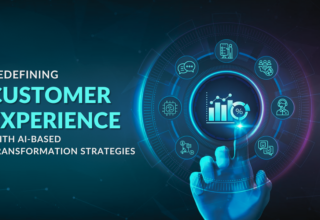
The financial sector is one of the largest users of high-performance computing as it enables extremely valuable analytics to be performed regarding customer risk assessment, valuation and pricing of securities, and simulation of economic scenarios. The financial sector is gathering information about customers, both specific and generic at a faster rate than ever before in a bid to understand customer behavior and deliver appropriate products and services. The evolution of computing and big data collection has impacted almost every industry, but a more visible effect can be seen in the financial sector that has embraced it very well.
Without having access to sophisticated tools that perform reliable and accurate financial analytics it would be impossible for these institutions to comprehend the patterns or relationships that are contained within the data. The necessity of providing financial analytics that are more accurate and reliable faster than before will propel more financial institutions to make use of high-performance computing that feeds on big data to make decisions that are more informed.
Why Big Data?
Financial institutions have understood it very well that the more the data they have, the better is the precision for understanding and predicting the growth potential and financial health of companies and individuals. The implementation of big data provides the opportunity to handle and manage extremely big data volumes within the required time frame and at an extremely high speed. This permits analysis of data and appropriate reaction in real-time. Institutions that handle large volumes of data, particularly in the finance and retail sectors, are likely to benefit significantly from analysis of big data.
Social Media and Big Data
There are many that say that social media is just a fad that will pass but given the rate of proliferation of the number of social media platforms, this does not seem likely in the near term. Currently there is a huge focus on big data analysis of social media trends and behavior by many businesses using high-performance computing. One of the main reasons for going such trouble and expense is to establish whether a business is being effective in employing social media and turn it into a competitive advantage. Businesses are also using big data analysis and data integration techniques to obtain insights into consumer behavior, habits, and preferences to make their products more appealing to them. The largest implementation of big data is happening on the more popular social media platforms such as Facebook and Twitter besides e-commerce sites like Amazon and eBay.
Analysis of big data on a real-time basis allows businesses to fine-tune product offers and offer discounts and freebies just at the moment the consumer is on the product or service page and quite likely actively considering a purchase. The ability to do this consistently and seamlessly can seriously impact upon the business’s ability to boost sales revenue.
Data Ingestion Rate Challenge
The ability to process increasing volumes of data in diverse formats will be the real challenge for most businesses. Processing powers as well as storage capacity are not issues to get bothered over given the rapid technological advances being made, as is networking through both wired and wireless communication systems. The real success of big data implementation will be the ability to analyze the data as it is being collected; basically by keeping both the processes running concurrently. While the method works exceedingly well in batch processing, the real challenge lies in ensuring that smaller jobs do not get sidelined by the larger ones in an environment that is witnessing high through puts. Adequate thought has to be put into designing systems that ensure that even large numbers of smaller jobs can get processed without requiring them to be individually scheduled to prevent them from disrupting the processing of larger jobs.
Author bio: Alan Sharpe is a senior data technologist specializing in designing dataflow systems for big data applications and data integration in the financial sector.


















